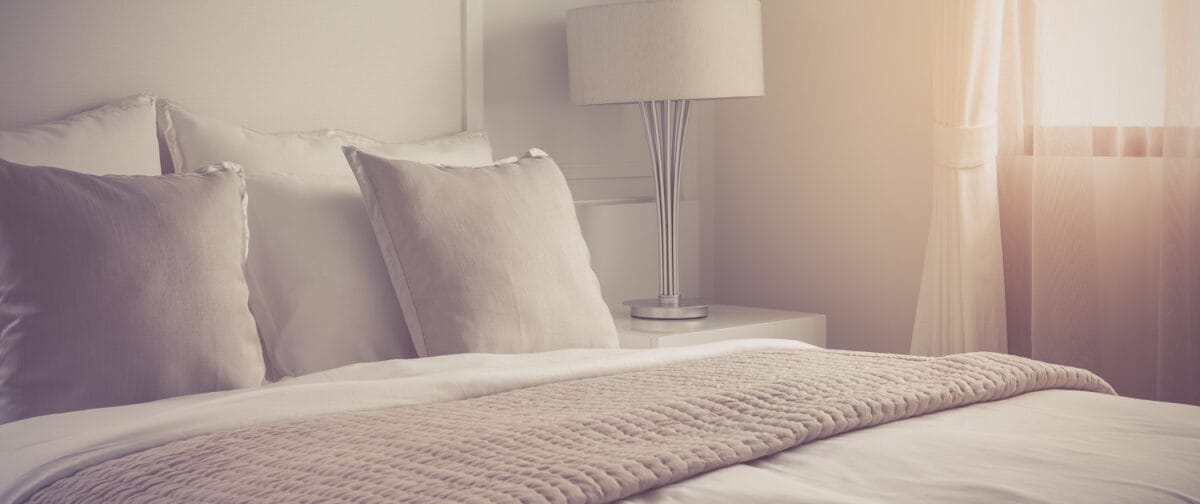Blog
Sleeping on the Job: The Value of Sleep Programs in Corporate Wellness Programs
|

Blog
Sleeping on the Job: The Value of Sleep Programs in Corporate Wellness Programs|

 The business value of corporate wellness programs has been well-documented, from reducing health care costs, turnover and absenteeism to a high return on investment, these programs can also be key tools for attracting top talent. Many employee wellness programs do a great job focusing on healthy lifestyle components, like nutrition, hydration and exercise. But a critical component is missing from many programs: Sleep. Perhaps discussing sleep in the workplace feels off-limits. It’s one thing to supply employees with water bottles, stock the office with healthy snacks, subsidize gym memberships or organize a lunchtime walking group, but does focusing on sleep mean you’re encouraging employees to literally sleep on the job? Maybe, maybe not. But you’d better believe a more rested employee is a happier, more engaged and productive employee.
The business value of corporate wellness programs has been well-documented, from reducing health care costs, turnover and absenteeism to a high return on investment, these programs can also be key tools for attracting top talent. Many employee wellness programs do a great job focusing on healthy lifestyle components, like nutrition, hydration and exercise. But a critical component is missing from many programs: Sleep. Perhaps discussing sleep in the workplace feels off-limits. It’s one thing to supply employees with water bottles, stock the office with healthy snacks, subsidize gym memberships or organize a lunchtime walking group, but does focusing on sleep mean you’re encouraging employees to literally sleep on the job? Maybe, maybe not. But you’d better believe a more rested employee is a happier, more engaged and productive employee.
The Cost of Sleep Deprivation
In the first quarter this year, Beehive launched an inaugural Sleep Well experiment. Employee survey data from last year told us employees highly valued good sleep but that getting enough was either “hard” or “very hard.” Couple this challenge with some sobering sleep statistics:
- 50-70 million Americans have a sleep disorder
- 37.9 percent of Americans report unintentionally falling asleep during the day at least once in the preceding month
- 45 percent of Americans say that poor or insufficient sleep affected their daily activities at least once in the past seven days
- One-third of Americans get fewer than 7 hours a sleep each night
- Sleep deprivation contributes to $63.2 billion in lost productivity annually
Sleep is now widely regarded by wellness professionals as “the single most effective thing you can do to reset your brain and body for health,” with benefits like: reducing depression and anxiety, minimizing weight gain, lowering hypertension, improving memory and reducing disease risks.
Enter the Sleep Well Experiment
From January through March, Beehive shared with employees a series of educational articles, tip sheets and simple action steps they could take to improve the quality and quantity of their sleep. Each two-week series focused on a different topic (Mental Stress, Nutrition, Technology, Exercise, Physical Sleep Environment), with the objectives of: inspiring our team to develop healthier sleep habits and motivating healthy changes slowly and consistently. Each Monday, employees committed to experimenting with one tip for improving their sleep, and each Thursday we shared our progress together for support and accountability.
Napping for Boosting Alertness and Productivity
Yes, we even added a napping spot to our meditation room – a comfortable spot where employees could experience the benefits of a short, 10-20 minute-power nap to reboot their brain. Sleep experts say 10-20 minutes is ideal for a boosting alertness and energy, lifting productivity and mood, and improving memory and learning.
Where to Start?
If you aren’t sure where to start improving your sleep, keep it simple:
- Go to bed and get up at the same time each night
- Turn off all screens – computer, phone TV – an hour before you go to bed
- Avoid heavy meals and alcohol three hours before bedtime and caffeine after noon
- If you’re getting less than 8 hours of sleep a night, slowly go to bed 15 minutes earlier until you reach 8 hours
So Far, So Good
So, what was the result of our Sleep Well Experiment? Bottom line, we’re all sleeping more. We’re also binge sleeping less on weekends; waking up before our alarm more; waking up less frequently; sleeping more soundly; falling back to sleep easier; waking up more rested; and waking up and going to bed at the same time more often. Not bad. Wellness programs that incorporate sleep initiatives can result in employees who are more resilient, more productive, make better decisions, have improved memory and retention, make fewer mistakes. Not sure it’s for your company? Just sleep on it. You’ll make a better decision tomorrow.
